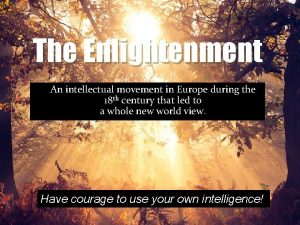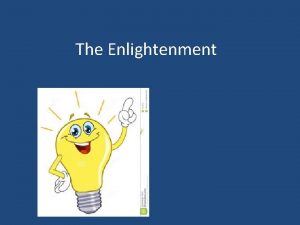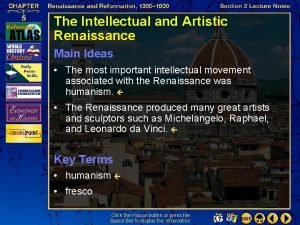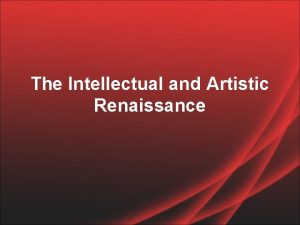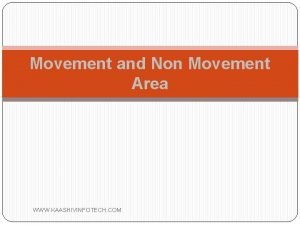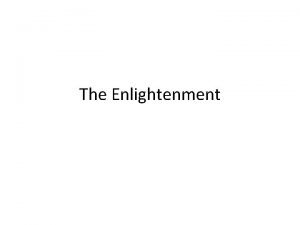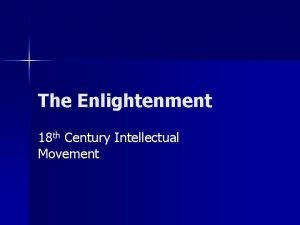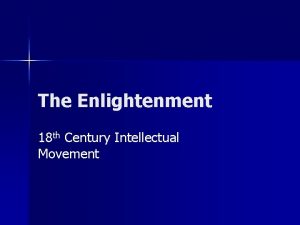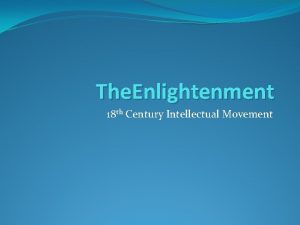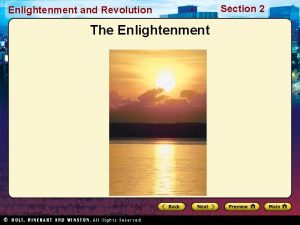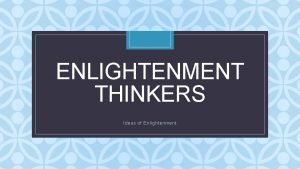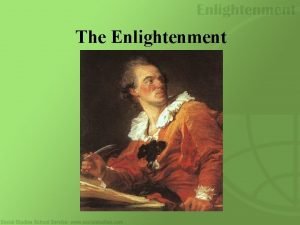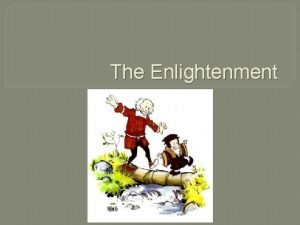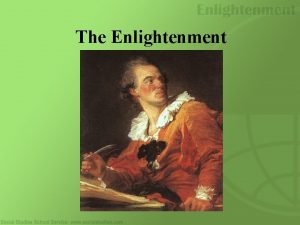The Enlightenment 18 th Century Intellectual Movement Intellectual











- Slides: 11

The Enlightenment 18 th Century Intellectual Movement

Intellectual Movement n Voltaire Locke Rousseau Diderot During the 18 th century, certain thinkers and writers, primarily in London and Paris, believed that they were more enlightened than their compatriots and set out to enlighten them.

Enlightenment Thinkers n These thinkers believed that human reason could be used to combat ignorance, superstition, and tyranny and to build a better world.

Enlightenment Targets n Their principal targets were religion (the Catholic Church in France) and harsh autocratic leaders.

Old traditions in Europe that are questioned during the Enlightenment: n Monarchy (despotism) – Not questioning your king – Divine Right Slavery n Religion as the authority on “right and wrong” n

Repression of the Monarchs and Church n The 17 th century was torn by witchhunts, wars of religion, and imperial conquest.

Control of the Government through Censorship n All publications, whether pamphlets or scholarly volumes, were subject to prior censorship by both church and state.

Slavery n Slavery was widely practiced, especially in the colonial plantations of the Western Hemisphere, and its cruelties frequently defended by leading religious figures.

Despotism/Autocracies n Belief of Divine Right led to people fearful of questioning the kings

Changes in Europe that opened people’s minds: n Economic Changes – (peasants started moving into the towns) n n Plus new wealth was coming in from the colonies Political Changes – (people started to believe that they had potential to change the government)

New Core Values n Old Values – – – n Community Authority Tradition New Values – Individualism – Freedom
 Intellectual movement in europe
Intellectual movement in europe What is the enlightenment
What is the enlightenment Renaissance main ideas
Renaissance main ideas Miplc
Miplc Father of italian renaissance humanism
Father of italian renaissance humanism Movement and non movement area
Movement and non movement area Examples of axial movement
Examples of axial movement đặc điểm cơ thể của người tối cổ
đặc điểm cơ thể của người tối cổ Tỉ lệ cơ thể trẻ em
Tỉ lệ cơ thể trẻ em Vẽ hình chiếu vuông góc của vật thể sau
Vẽ hình chiếu vuông góc của vật thể sau Các châu lục và đại dương trên thế giới
Các châu lục và đại dương trên thế giới Thế nào là hệ số cao nhất
Thế nào là hệ số cao nhất
